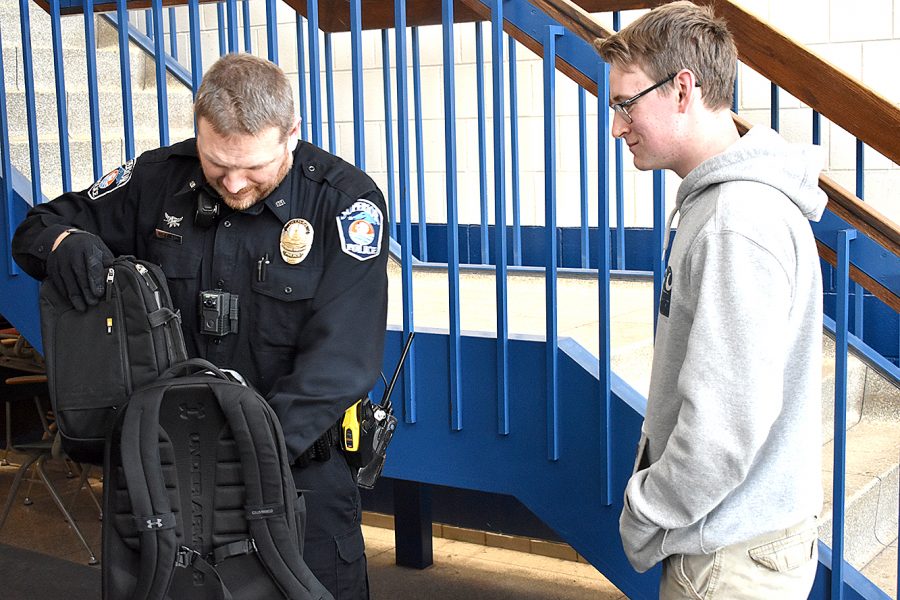
In State v. Duncan, the WA Supreme Court decided police officers may make a limited sweep of a vehicle under the community caretaking exception to the warrant requirement when (1) there is reasonable suspicion that an unsecured weapon is in the vehicle and (2) the vehicle has or shortly will be impounded and will be towed from the scene. However, this exception may not be used as a pre-text for an investigative search.
A little after midnight in Yakima one summer night in 2009, someone in a car shot into a home, grazing Kyle Mullins’ head. Other people in the home called 911 for medical assistance and to report the shooting. Callers described the car as white and possibly a Subaru or Impala. Officers were dispatched and stopped Duncan’s white Ford Taurus. Officers removed Duncan and his two passengers from the car at gunpoint, ordered them to the ground, handcuffed them, and put them in separate police cars. Without a warrant, officers opened the doors and found shell casings on the floor and a gun between the front passenger seat and the door. One officer removed the gun and placed it into an evidence bag in his own patrol car. The passengers told the police that Duncan had fired from the car and tossed the gun on the front floorboards. After the car was towed to a police annex, police obtained a warrant and made a more thorough search.
Duncan was charged with six counts of first degree assault and one count of unlawful possession of a firearm. Duncan moved to suppress the evidence under CrR 3.6 and confessions under CrR 3.5 that flowed from the traffic stop on several grounds, including that the police had insufficient grounds to stop him and that their initial warrantless search of his car was improper. At the pretrial suppression hearing, held a year and a half after the events of that summer night, the judge found that the stop was justified and that the search was reasonable, and denied the motions.
The jury returned guilty verdicts on all charges and found by special verdicts that Duncan was armed with a firearm. The judge sentenced Duncan to 1,159 months of incarceration, the top of the standard range. Duncan’s projected release date is March 26, 2099.
The case was appealed to the WA Supreme Court to decide the issue of whether the warrantless search of Duncan’s vehicle was lawful. The Court decided it was.
The Court reasoned that generally, warrantless searches and seizures are per se unreasonable. Nonetheless, there are a few jealously and carefully drawn exceptions to the warrant requirement which provide for those cases where the societal costs of obtaining a warrant, such as danger to law officers of the risk of loss or destruction of evidence, outweigh the reasons for prior recourse to a neutral magistrate. The State bears the burden of showing that the search and seizure was supported by a warrant or an exception to the warrant requirement. The fruits of an unconstitutional search and seizure must be suppressed.
The Court reasoned that the search was not lawful under Arizona v. Gant for “officer safety” reasons because the vehicles’ occupants are detained in police cars. Also the search was not lawful under the Plain View Doctrine because the officers could see the gun from outside the vehicle. Finally, the search was also not a valid inventory search because the car was not impounded.
However, the court found the search was lawful under the community caretaking exception to the warrant requirement. Under that exception, officers may make a limited sweep of a vehicle when (1) there is reasonable suspicion that an unsecured weapon is in the vehicle and (2) the vehicle has or shortly will be impounded and will be towed from the scene.
We caution, however, that the community caretaking exception is a strictly limited exception to the warrant requirement. It may not, however, be used as a pretext for an investigatory search:
“It will only rarely justify intrusion into a private place or vehicle after an arrest. However, given the facts of this case and the fact that the sweep of the vehicle occurred before our opinion in Snapp, 174 Wn.2d 177, was announced, we are confident that the desire to remove an unsecured gun from the vehicle was not here used as a pretext for an otherwise unlawful search.”
With that, the Court concluded that the limited search of the vehicle was lawful and affirmed Duncan’s conviction.
My opinion? For those who don’t know, pretextual searches are unlawful. They usually describes false reasons that hide the true intentions or motivations for a legal action. If a party trying to admit the evidence can establish good reasons, the opposing party – usually, the defense – must prove that the these reasons were “pretextual,” or false, and move to suppress the “fruits” of the search.
Here, I understand the Court’s logic. I’m glad the Court appreciates the unlawfulness of pretextual searches and makes distinctions in the case at hand. Unfortunately, until now, unlawful pretext searches have been mitigated and/or simply ignored by our courts for many years.
Please contact my office if you, a friend or family member are charged with a crime. Hiring an effective and competent defense attorney is the first and best step toward justice.
















